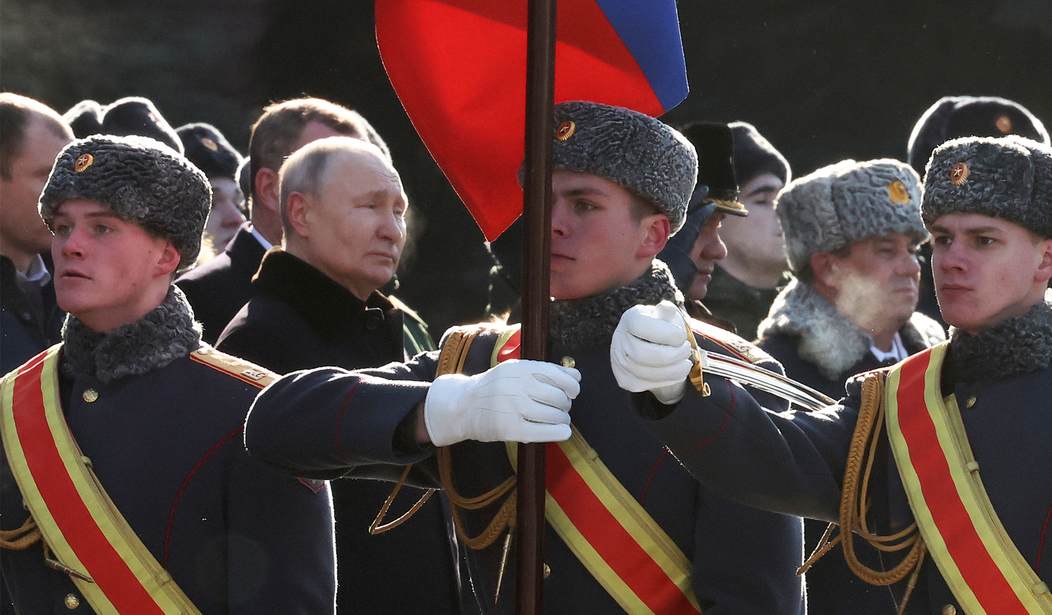“(Consumerism) It is living in a manner that is measured by having rather than being." — John Paul II “Freedom is never more than one generation away from extinction." — Ronald Reagan.
In the ever-shifting realm of global politics, drawing direct parallels between contemporary conflicts and historical events can often obscure reality. Each situation's nuances require uncovering the underlying currents.
The ongoing Ukraine War, frequently examined in light of Russian President Vladimir Putin's actions, epitomizes this challenge. Yet, it's crucial to acknowledge that this conflict differs significantly from its historical counterparts.
Vladimir Putin's actions, however controversial, cannot be equated to the actions of historical despots such as Stalin.
In our collaborative work "The Divine Plan," Paul Kengor and I delved into the lives of Pope John Paul II and Ronald Reagan, exploring their shared mission to dismantle the Berlin Wall and Soviet oppression.
Back in 1982, both Reagan and JPII survived assassination attempts and devised a vision called "The Divine Plan" to dissolve communism.
However, today's Ukraine war, entangled in its complex web of international dynamics, distinctly lacks the faith-based motivations that guided earlier endeavors. Furthermore, it lacks the clear American identity that marked the past.
Since the fall of 1992, Pope John Paul II's concerns regarding the rise of global consumerism have mirrored apprehensions about American expansionism.
Fast-forwarding to today, we confront a multifaceted interplay of power, alliances, and interests extending well beyond the Cold War's black-and-white notions of good and evil or even mutual annihilation.
Recommended
While profound faith-based principles propelled Reagan and John Paul II, today's political landscape is a mosaic woven with unchecked interests marked by a distinct absence of restraint.
John Paul II's caution against communism's perils wasn't a plea to act as a puppet for American expansionism or the military-industrial complex.
The intricacies of geopolitics involve negotiations often rooted in global interests. Reducing John Paul II's warnings to religious motives undermines the economic interests underlying international relations.
As we near the 35th anniversary of the fall of the Berlin Wall in November 2024, our world has drastically evolved. The stark divisions of the Cold War have given way to a global landscape where economic interests clash unprecedentedly.
The Ukraine War doesn't mimic past conflicts but embodies a complex blend of historical ties, ethnic intricacies, and regional power struggles.
While the implications of NATO expansion and its impact on European security warrant discussion, simplifying a "dying Europe" incapable of self-defense belies the true dilemma at play.
European dynamics hinge on a fragile equilibrium of economic, political, and security considerations shaped by both internal and external factors.
Contrasting John Paul II's warnings with Karl Marx's may appear incongruous, yet it underscores the diverse perspectives shaping modern worldviews.
Marx's prediction of capitalism's global expansion, with its quest for cheap labor, control over the political class, and mass media influence, doesn't foretell our future. Still, it does resonate to a considerable extent.
Modern capitalism, shaped by exploited labor dynamics, is an intricate interplay of technological advancements, market diversification, and multinational behaviors.
While the role of communication and narrative control is undeniable, the prevalence of figures like Mitch McConnell and Joe Biden Jr. in shaping the narrative reveals the broader media's complicity.
When assessing perceived threats posed by leaders like Putin, it's essential to acknowledge their multi-dimensional impact. Although he's left indelible marks on international politics, viewing his role through a singular lens risks missing the subtleties of his policies and actions.
While "The Divine Plan 2.0" holds promise, it's imperative to acknowledge the stark differences between today's challenges and opportunities and those of the past. Notably, the absence of character and faith is a glaring void.
Despite decades of anti-Reagan rhetoric, it's vital to acknowledge Reagan's efforts to de-escalate the arms race and pursue peaceful solutions, driven by his experiences as a child of World War II.
In our complex and ever-evolving world, embracing geopolitical analysis with an open mind while championing unique perspectives is pivotal. The Ukraine War, the intricate global network, and shifting power dynamics demand vigilant attention and insightful warnings, transcending the confines of Cold War rhetoric.
Navigating this shifting terrain mandates a comprehensive grasp of contemporary geopolitics. The sustainability of commitments made decades ago must be evaluated against present security risks.
Amid these intricate geopolitical currents, where is the public's expression of faith and solidarity as the ultimate force for peace? The voices of Reagan, John Paul II, Thatcher, and Gorbachev are notably absent.
We cannot perpetually uphold commitments forged in a vastly different context in a world transformed beyond recognition. The Ukrainians' journey, the support they receive, and the policies they endorse necessitate a fresh evaluation, standing at a crossroads where destiny awaits either embracement or alteration.
While Biden’s puppetmasters may wield temporary influence, the strings of destiny aren't theirs to pull indefinitely; inevitably, in The Divine Plan, the ego-driven drama yields to the higher drama of fate.
To purchase The Divine Plan book or watch the movie, please visit: www.thedivineplanmovie.com

























Join the conversation as a VIP Member